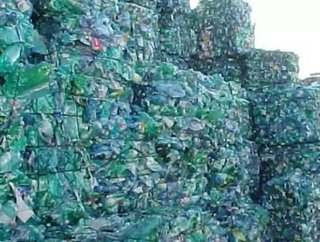China clamps down on plastic recycling imports

China used to be the first port of call when it comes to waste plastic imports. For years, the country had shown an insatiable appetite for imports of plastics, promoting a thriving recycling business supported by low-cost labour sorting and lax regulatory controls.
Last year, however, the government begun to take actions to rein in the industry, imposing policies which tighten up control of plastic import and trading. This year, the government is enacting a new regulation which bans improper recycling practices which may pollute the environment.
An announcement jointly made by China’s Ministry of Environmental Protection, the National Development and Reform Commission and the Ministry of Commerce, impose new rules that will take effect at the beginning of next month.
The new rules ban irresponsible handling of scrap materials, and impose restrictions on recycling techniques, rules on unwashed plastic materials and the handling of hazardous waste in the country.
Specifically, it imposes new regulations on the recycling of imports of scrap plastic, where the industry will be prohibited from the following:
- Importing unwashed, post-consumer scrap;
- Transferring imported waste to a company other than what is allowed by the import license, including sending the materials to vendors for washing services;
- Selling unwashed leftover plastic materials after sorting and processing imported plastic scrap;
- Selling unwashed leftover plastic materials after sorting and processing imported scrap paper.
The policy asks recycling companies to report to government agencies plastic waste that is banned or violates environmental protection rules. It also encourages regions with concentrated plastic scrap distribution and processing businesses to establish treatment facilities for post-recycling waste water, gas emissions, and solid waste.
The central government asks provincial-level environmental protection and commerce administration agencies to inspect local recyclers and publish the list of qualified recyclers as well as companies that fail the inspection and follow-up actions.
Starting Jan. 1, only companies that have passed the inspection will be allowed to import waste plastics.
- Cainiao: The World's Largest Ecommerce Logistics ProviderOperations
- Moving manufacturing from China 'impossible for many'Supply Chain Risk Management
- China policy sees Apple CEO Tim Cook go from hero to zeroSupply Chain Risk Management
- China Foxconn iPhone factory an 'albatross' for AppleSupply Chain Risk Management






